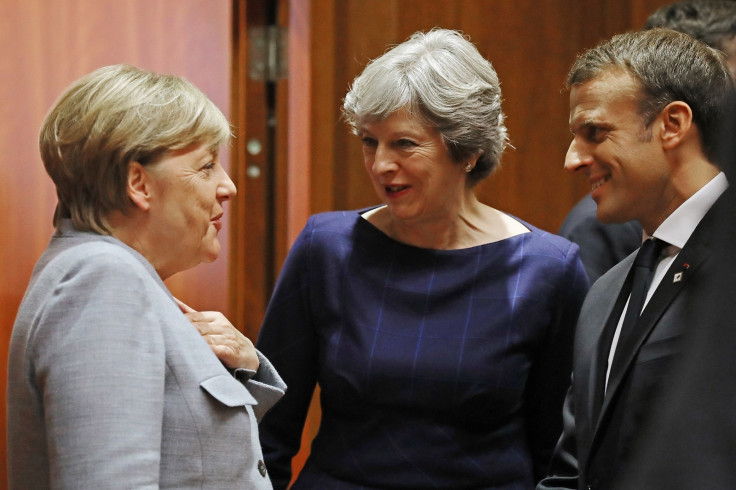Labour will back Tory rebels on Brexit deal unless Theresa May changes divorce bill
'There is a way through this paralysis. Labour will work with all sides to make that happen' said Starmer.
Labour could unite with Tory rebels over Brexit unless Prime Minister Theresa May accept changes to the so-called 'divorce bill', the party shadow Brexit secretary has claimed.
Sir Kier Starmer proposed six changes to the repeal bill, formerly known as the European Union withdrawal bill, which aims to transfer EU legislation into British law. Unless these amendments are accepted, Labour will back Conservative rebels to force a vote on the final deal between the UK and EU.
Starmer said the government unexpectedly withheld the legislation from the House of Commons for two weeks due to fears of defeat on at least 13 amendments at the hands of Tory rebels.
Failure to reach a majority in June elections meant that May has to seek the alliance of the Democratic Unionist party (DUP), and a revolt by Tory MPs could derail the bill.
Writing in the Sunday Times, Starmer asked for the following changes:
- MPs get the "final say on whether to approve the withdrawal agreement and how best to implement it"
- The transition period requested by Prime Minister Theresa May is added into the legislation
- A "completely different approach" to the use of powers the government argues are needed to make technical changes to regulations from Brussels
- A guarantee that workers' and consumer rights, as well as environmental standards, are not watered down after Brexit
- A concession to devolved administrations who want repatriated powers that would normally fall under their remit to go straight to Scotland, Wales and Northern Ireland, rather than the Westminster government first
- Putting the EU charter of fundamental rights into UK law
"I believe there is a consensus in parliament for these changes. And there is certainly no majority for weakening rights, silencing parliament and sidelining the devolved administrations. There is a way through this paralysis. Labour will work with all sides to make that happen," Starmer wrote.
His comments came days after Germany chancellor Angela Merkel suggested the EU is ready to being trade talks, amid fears that a stalemate on negotiations could result in the UK leaving the EU without a deal in March 2019.
The EU has so far refused to discuss trade until issues such as citizens rights, the Irish border and the divorce bill have been settled. However, Merkel said on 19 October there had been "encouraging" progress from the talks between Brexit secretary David Davis and the EU chief negotiator Michel Barnier.
Davis will travel to Paris for Brexit talks on 23 October after France emerged as the most hardline EU member state on the exit bill, the PA reported.
French President, Emmanuel Macron, suggested during this week's European council summit that the bill could be more than €40bn (£36bn).
In a speech delivered in Florence last month, May said the UK would pay £20bn.























